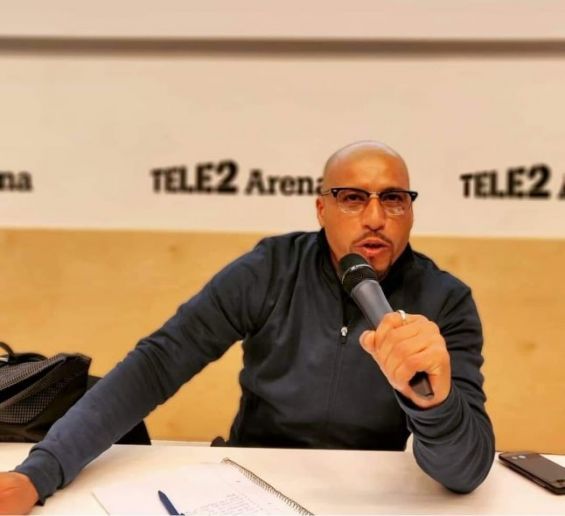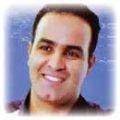After former Moroccan footballer Adil Glia started working for the West Ham United Football Club Foundation for young players under 14, he joined the team’s academy last year. There, he works as talent identification (scout).
Before that, the football aficionado built himself a rich and long resume. He was able to combine his passion for football and studies, which helped him construct a long professional career, especially in coaching in the United Kingdom.
Born in Salé in 1978, Adil Glia grew up in the Boutouil neighborhood. A neighborhood that saw the emergence of several Moroccan football stars, including coach Abdesamad Bouzidi and Chouaib Sikouk who served within the technical staff of Egypt’s Ahly team.
A national team with nine players
Glia’s love for football was nurtured at the Salé Association club, where he played with the first team at the age of 16 until he turned 22. He then joined the Kenitra Club and climbed with the team to the Premier Division.

At the time, the young footballer was studying economics at the Mohammed V University in Rabat. Even while at the university, football did not leave his mind. He was chosen by the varsity team, alongside well-known players such as Youssef Chippo and Mohamed El Khouil to participate in the University Olympic Games that were held in Mallorca, Spain in 1999.
He still remembers the day he defended the colors of the Moroccan varsity team. «We led the group after defeating the host Spanish national team, Uruguay and Australia, and we won in the second round against the Japanese team».
«If about half of the team had not fled from our residence, we would have won one of the medals. In the quarter-round we played against the Czech national team with only nine players and we put the second goalkeeper as a midfield player… We were defeated by penalty kicks. Before the match, we tried to convince the players to stay until the end of the competition, but they refused, it was their desire to leave».
«The Spanish national team won the competition, although they ranked second in our group, and we defeated them when we were playing with eleven players», he recalled.
After his return to Morocco, he signed a professional contract in the United Arab Emirates. «I realized that I was lied to and I did not join a famous Emirati team like I was told».
Fortunately, the Omani sports club Sur was impressed with his talent and signed a contract with him. Glia played in its ranks for one year, and the team ranked second in the local championship, and played in Asian competitions.

After that, the Moroccan player suffered an injury and returned to the UAE for a one-year treatment. He then returned to Bahrain and played for years with a group of teams including Al-Najma, Al-Riffa, and Al-Sahel. At the age of 29, the same injury forced him into retirement, hence his new focus on gaining experience in the field of coaching.
From the Gulf to West Ham United
«I worked in Qatar with the Real Madrid Academy and Aspire Academy, and five years ago I went to England to complete my studies in the field of sports training (talent exploration science). I joined the University of East London, and in addition to my studies I was asked to coach its football team».
«This university is specialized in the sports field, and it was keen on training players in various sports to participate in the Olympic Games and other competitions, and I got a foundation degree from it last year, but the pandemic forced me to put my studies on hold», he told Yabiladi.
The university had a partnership agreement with West Ham United, where he completed an internship two years ago. Impressed with his skills, they suggested that he join them.
«I work with West Ham United as a talent prospector for players under 10 years old, and a coach at the same time in the team's institution for the age groups of less than 14 and 16 years old», he explained.

Glia sees his work as a bridge between the club’s institution and the academy affiliated to it. «We search for talents and train them in the institution for a period of time, then decide whether they will join the academy», he said.
«I love coaching the youth, it feels like the training that we were deprived of in Morocco when we were young. Therefore, the player does not become famous in Morocco until the end of their twenties due to the lack of academic training that would enable them to thrive in their 20s».
«In the future, I may return to Morocco, but after gaining a greater experience in training, I received offers from the Gulf, but I want to complete my studies before thinking about it», the coach concluded.





 chargement...
chargement...












